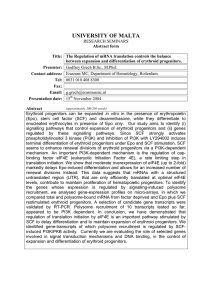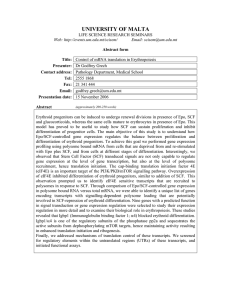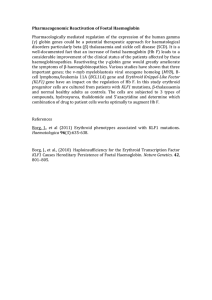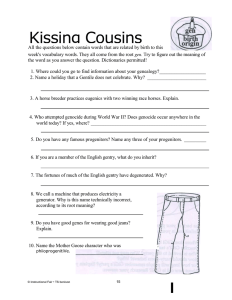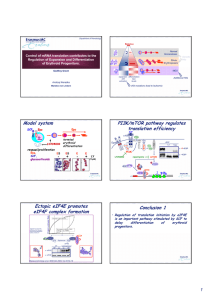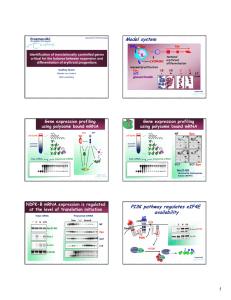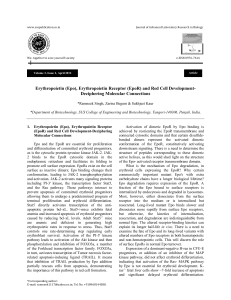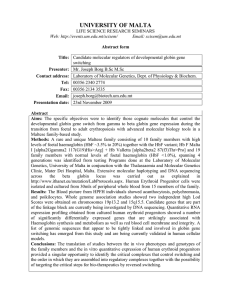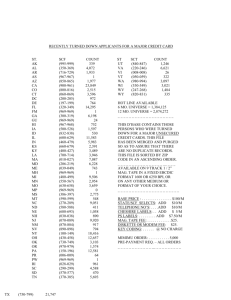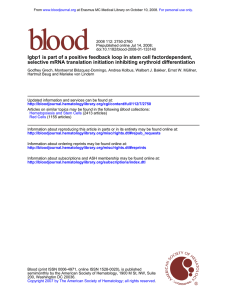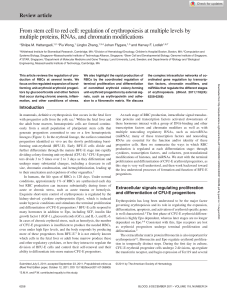UNIVERSITY OF MALTA
advertisement
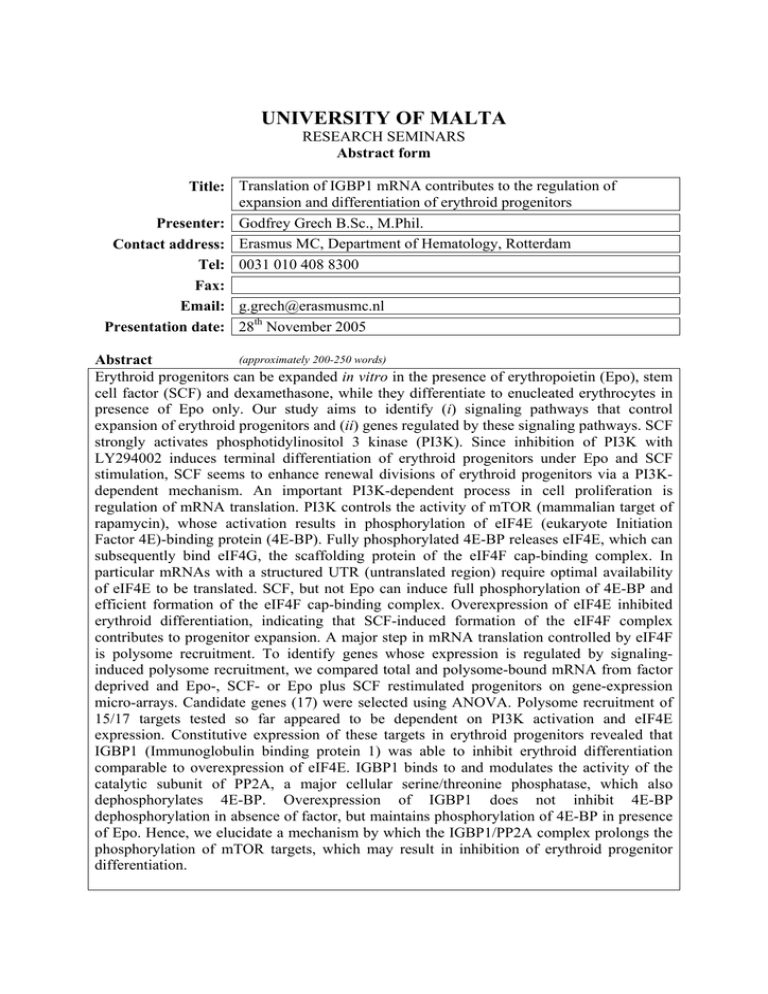
UNIVERSITY OF MALTA RESEARCH SEMINARS Abstract form Title: Translation of IGBP1 mRNA contributes to the regulation of expansion and differentiation of erythroid progenitors Presenter: Godfrey Grech B.Sc., M.Phil. Contact address: Erasmus MC, Department of Hematology, Rotterdam Tel: 0031 010 408 8300 Fax: Email: g.grech@erasmusmc.nl Presentation date: 28th November 2005 (approximately 200-250 words) Abstract Erythroid progenitors can be expanded in vitro in the presence of erythropoietin (Epo), stem cell factor (SCF) and dexamethasone, while they differentiate to enucleated erythrocytes in presence of Epo only. Our study aims to identify (i) signaling pathways that control expansion of erythroid progenitors and (ii) genes regulated by these signaling pathways. SCF strongly activates phosphotidylinositol 3 kinase (PI3K). Since inhibition of PI3K with LY294002 induces terminal differentiation of erythroid progenitors under Epo and SCF stimulation, SCF seems to enhance renewal divisions of erythroid progenitors via a PI3Kdependent mechanism. An important PI3K-dependent process in cell proliferation is regulation of mRNA translation. PI3K controls the activity of mTOR (mammalian target of rapamycin), whose activation results in phosphorylation of eIF4E (eukaryote Initiation Factor 4E)-binding protein (4E-BP). Fully phosphorylated 4E-BP releases eIF4E, which can subsequently bind eIF4G, the scaffolding protein of the eIF4F cap-binding complex. In particular mRNAs with a structured UTR (untranslated region) require optimal availability of eIF4E to be translated. SCF, but not Epo can induce full phosphorylation of 4E-BP and efficient formation of the eIF4F cap-binding complex. Overexpression of eIF4E inhibited erythroid differentiation, indicating that SCF-induced formation of the eIF4F complex contributes to progenitor expansion. A major step in mRNA translation controlled by eIF4F is polysome recruitment. To identify genes whose expression is regulated by signalinginduced polysome recruitment, we compared total and polysome-bound mRNA from factor deprived and Epo-, SCF- or Epo plus SCF restimulated progenitors on gene-expression micro-arrays. Candidate genes (17) were selected using ANOVA. Polysome recruitment of 15/17 targets tested so far appeared to be dependent on PI3K activation and eIF4E expression. Constitutive expression of these targets in erythroid progenitors revealed that IGBP1 (Immunoglobulin binding protein 1) was able to inhibit erythroid differentiation comparable to overexpression of eIF4E. IGBP1 binds to and modulates the activity of the catalytic subunit of PP2A, a major cellular serine/threonine phosphatase, which also dephosphorylates 4E-BP. Overexpression of IGBP1 does not inhibit 4E-BP dephosphorylation in absence of factor, but maintains phosphorylation of 4E-BP in presence of Epo. Hence, we elucidate a mechanism by which the IGBP1/PP2A complex prolongs the phosphorylation of mTOR targets, which may result in inhibition of erythroid progenitor differentiation.
